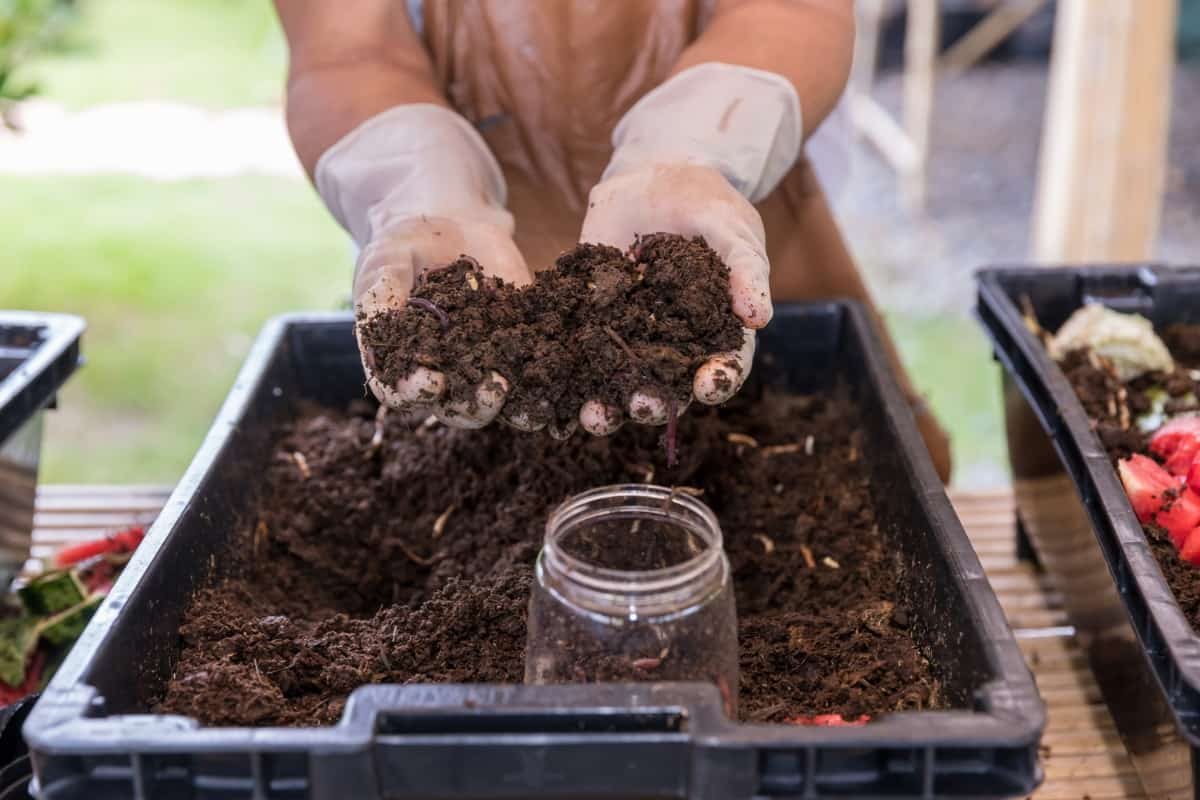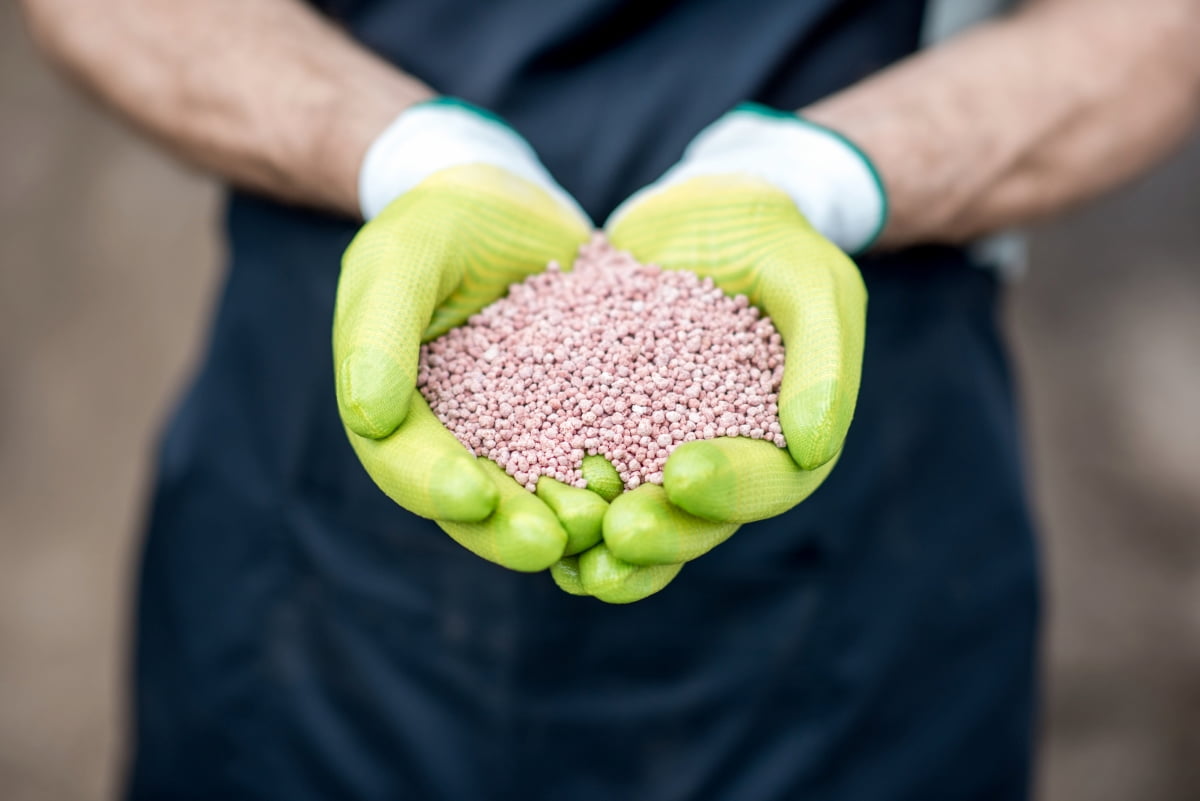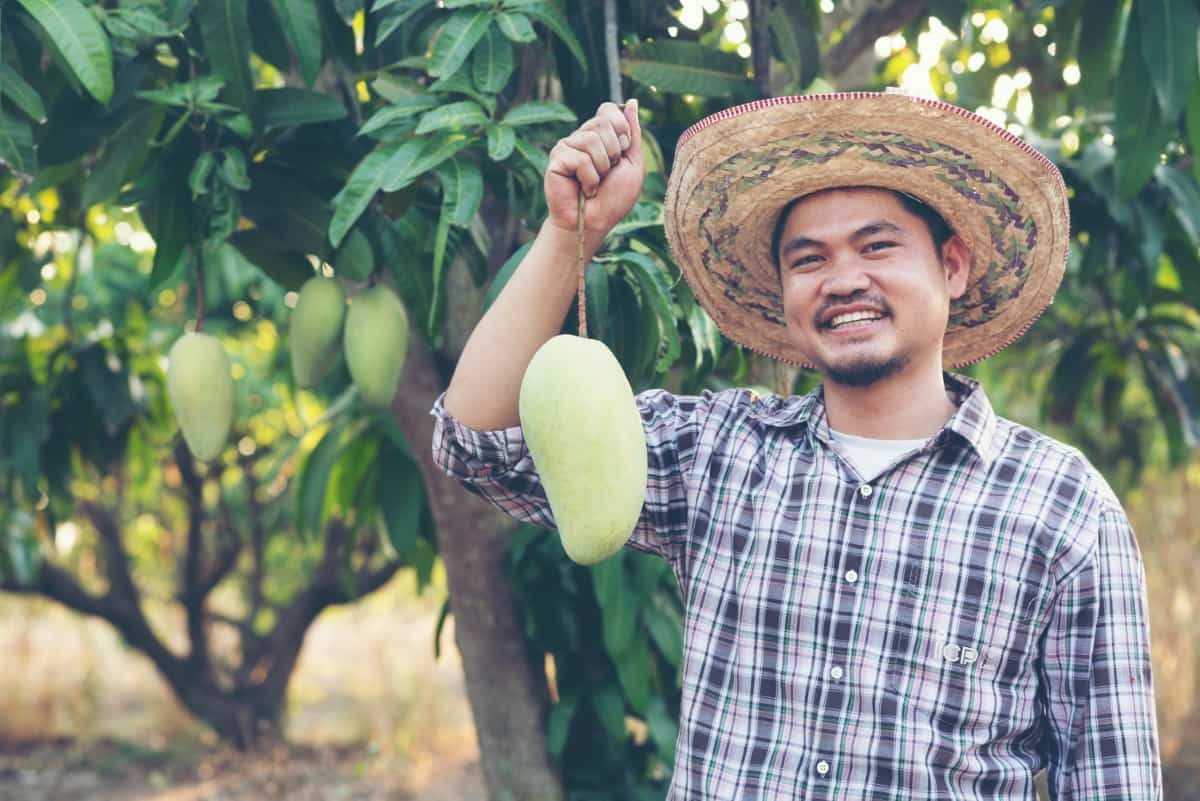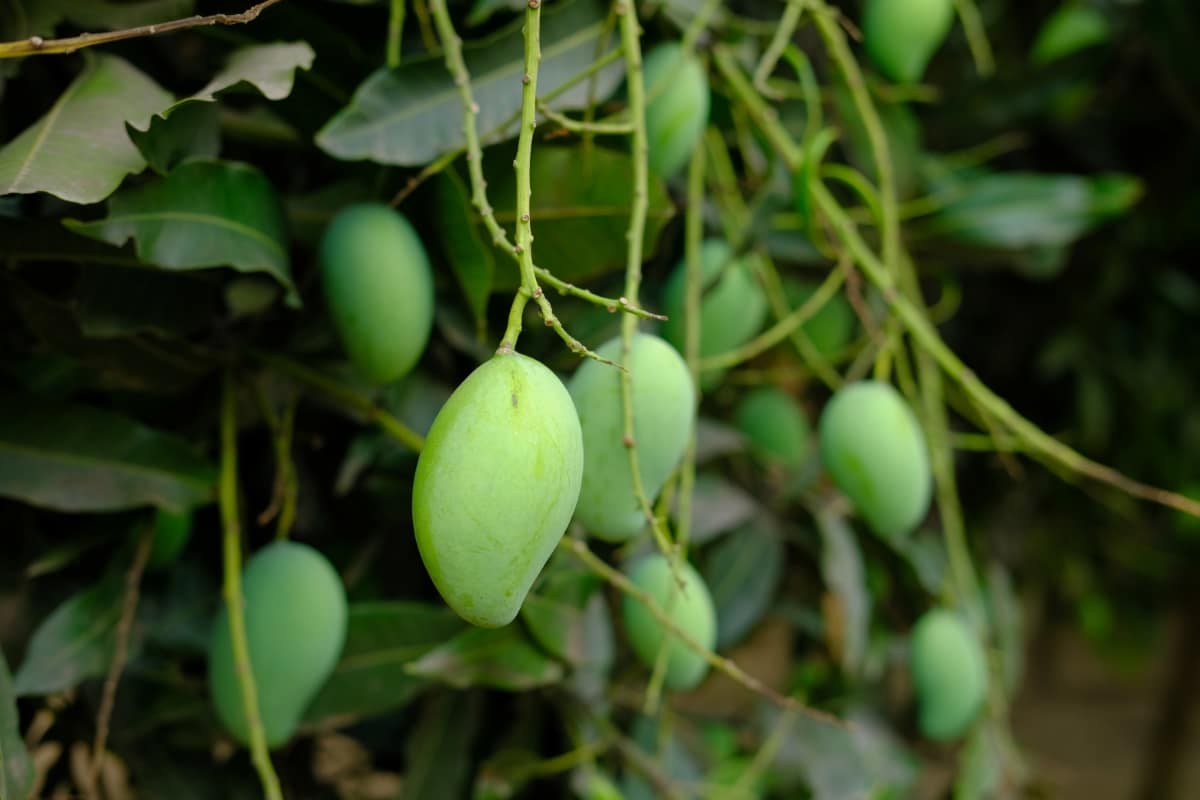Mango trees, scientifically known as Mangifera indica, are tropical fruit trees that require proper fertilization to ensure healthy growth and abundant fruit production. Fertilization is crucial in providing essential nutrients to the mango tree, promoting root development, and improving overall tree vigor. This document will discuss the schedule and application methods for mango tree fertilization.

Understanding the Nutritional Requirements of Mango Trees
Understanding the nutritional requirements of mango trees is crucial for their healthy growth and optimal fruit production. Mango trees require a balanced supply of essential nutrients, including nitrogen, phosphorus, and potassium. Nitrogen promotes leaf growth, phosphorus stimulates root development, and potassium enhances fruit quality.
Additionally, mango trees benefit from secondary nutrients such as calcium(C) and magnesium(Mg) and trace elements like iron, zinc, and manganese. Regular soil testing is necessary to determine nutrient levels and ensure appropriate fertilization. Adequate nutrition helps mango trees resist diseases, withstand environmental stresses, and produce high-quality fruits. Proper understanding and management of the nutritional requirements are vital for successful mango cultivation.
Importance of Fertilization in Mango Tree Health and Productivity
Fertilization plays a crucial role in maintaining the health and productivity of mango trees. Mango trees require a balanced supply of essential nutrients to ensure optimal growth and development. Fertilizers provide these nutrients, such as nitrogen, phosphorus, and potassium, which are vital for the tree’s overall health. Adequate fertilization promotes vigorous growth, enhances fruit production, and improves the quality of mangoes.
Additionally, fertilization helps improve the tree’s resistance to pests and diseases, ensuring a longer lifespan. It is important to follow recommended fertilization practices, including the timing, amount, and type of fertilizer used, to maximize the benefits and minimize any potential negative impacts on the environment.
Factors Influencing Mango Tree Fertilization Schedule
- Young mango trees require more frequent fertilization compared to mature trees.
- The soil fertility determines the nutrient availability for the tree, so it is important to assess the soil’s nutrient content before determining the fertilization schedule.
- Weather conditions such as rainfall and temperature affect nutrient uptake and soil moisture, impacting fertilization requirements.
- Different mango varieties may have varying nutrient needs, so it is essential to consider the specific variety when determining the fertilization schedule.
Considering these factors, a suitable fertilization schedule can be created to ensure healthy growth and optimal fruit production for mango trees.
Determining the Ideal Fertilizer Composition for Mango Trees
Determining the ideal fertilizer composition(N:P:K:Mg) for mango trees is crucial for their optimal growth and fruit production. Nitrogen (N) is essential for leaf and shoot development, while phosphorus (P) promotes root growth and flowering. Potassium (K) aids in overall plant health and disease resistance. Magnesium (Mg) is vital for chlorophyll synthesis and photosynthesis.
In case you missed it: The Ultimate Guide to Growing Mango Tree From Seed at Home

The recommended fertilizer composition for mango trees is typically 6:3:6:2 (N:P:K:Mg) or 15:5:15:5(N:P:K:Mg). However, soil testing is recommended to determine the specific nutritional requirements of the mango trees. It is important to consider factors like soil type, nutrient deficiencies, and the age of the trees when formulating the ideal fertilizer composition.
Preparing the Soil for Mango Tree Fertilization
Preparing the soil for mango tree fertilization ensures optimal growth and fruit production. Begin by clearing the area around the tree of any weeds or debris. This will prevent competition for nutrients and water. Next, loosen the soil using a tiller or garden fork to improve aeration and drainage.
Conduct a soil test to know its nutrient content and pH level. Based on the results, add organic matter such as vermicompost or well-rotted manure to improve soil fertility. Additionally, apply a balanced fertilizer specifically formulated for fruit trees, following the recommended application rates. Finally, water the soil thoroughly after fertilization to help nutrients reach the tree’s roots.
Timing and Frequency of Mango Tree Fertilization
Timing: It is recommended to fertilize mango trees during the active growing season, typically from early spring to late summer. Fertilizing during this period allows the trees to utilize the nutrients efficiently, promoting healthy growth and development.
Young Mango Trees (1-3 Years Old)
- First year: Apply a slow-release fertilizer in early spring, just after new growth begins. Repeat this application once every three months until the end of the growing season.
- Second year: Apply a slow-release fertilizer in early spring and mid-summer. Repeat these applications every three months.
- Third year: Apply a slow-release fertilizer in early spring, mid-summer, and late summer. Repeat these applications every three months.
Mature Mango Trees (4 Years and Older)
- Apply a slow-release fertilizer in early spring, just as new growth begins. Repeat this application every 4-6 months throughout the growing season.
- Additional fertilizer applications may be necessary if the tree shows nutrient deficiencies or reduced fruit production.
Applying Fertilizers to Mango Trees: Techniques and Best Practices
- Apply the fertilizer evenly around the tree’s root zone, avoiding direct contact with the trunk.
- For young trees, use a lower dose of fertilizer and gradually increase it as the tree matures.
- Timing is vital; apply fertilizers during the active growing season.
- Regularly monitor soil nutrients and adjust fertilizer applications accordingly.
- Lastly, always follow the manufacturer’s instructions and consult with experts for specific recommendations.
In case you missed it: How to Grow and Care for Mango Bonsai: Planting Instructions

Organic Vs. Synthetic Fertilizers for Mango Trees: Pros and Cons
Organic Fertilizers: Organic fertilizers, derived from natural sources like compost and animal manure, provide essential nutrients to the trees while improving soil health. They release nutrients slowly, promoting long-term growth. However, they can be more expensive and require larger quantities to achieve the same nutrient levels as synthetic fertilizers.
Synthetic Fertilizers: On the other hand, synthetic fertilizers are cost-effective and provide nutrients quickly. However, they can lead to nutrient imbalances, damage soil structure, and harm beneficial soil organisms. Ultimately, the choice of either organic or synthetic fertilizers for mango trees depends on the specific needs and priorities of the gardener.
Monitoring and Adjusting Fertilization Programs for Optimal Results
- Regular monitoring allows farmers to assess the nutrient status of the soil and make informed decisions on fertilizer application.
- Soil testing is a key monitoring component, as it helps determine the nutrient levels, pH, and organic matter content.
- Farmers can identify nutrient deficiencies or excesses by analyzing the test results and adjusting their fertilization programs accordingly.
- Additionally, monitoring plant growth and appearance can provide valuable insights into the effectiveness of the fertilization program.
- Adjustments may involve varying the fertilizer type, rate, timing, or application method.
- Continuous monitoring and adjustments ensure that crops receive the right nutrients at the right time, maximizing yields and minimizing environmental impact.
Common Mistakes to Avoid in Mango Tree Fertilization
When fertilizing mango trees, several common mistakes should be avoided. Firstly, over-fertilizing can be detrimental to the health of the tree. Excessive amounts of fertilizer can lead to salt accumulation in the soil, causing root damage. Secondly, using the wrong type of fertilizer can also be problematic. Mango trees require a balanced fertilizer with nitrogen, phosphorus, and potassium ratios.
In case you missed it: Mallika Mango Farming: A Comprehensive Guide to Planting, Pruning, Care, and Harvest

Using a fertilizer with an imbalanced ratio can result in poor growth and fruit production. Lastly, timing is crucial in mango tree fertilization. Applying fertilizer at the incorrect time can disrupt the tree’s natural growth cycle. By avoiding these mistakes, your mango trees’ have optimal growth and health.
Conclusion
Following a proper fertilization schedule and application methods, you can ensure that your mango tree receives the necessary nutrients for abundant fruit production and healthy growth. Consult local gardening experts or agricultural extension services for recommendations based on your region and mango tree variety.
- Feed Your Flock for Less: Top 10 Tips to Save on Chicken Feed
- Ultimate Guide to Ossabaw Island Hog: Breeding, Raising, Diet, and Care
- Hatching Answers: The Top 10 Reasons Your Chickens Aren’t Laying Eggs
- Eggs and Economics: Breaking Down the Cost of Raising Backyard Chickens
- Defend Your Greens: Proven Methods to Keep Iguanas Out of Your Garden
- Ultimate Guide to Cinnamon Queen Chicken: A Comprehensive Guide for Beginners
- Ultimate Guide to California Tan Chicken: Breeding, Raising, Diet, Egg-Production and Care
- Ultimate Guide to Marsh Daisy Chicken: Breeding, Raising, Diet, and Care
- 10 Types of Chicken Farming Businesses You Can Start for Profits